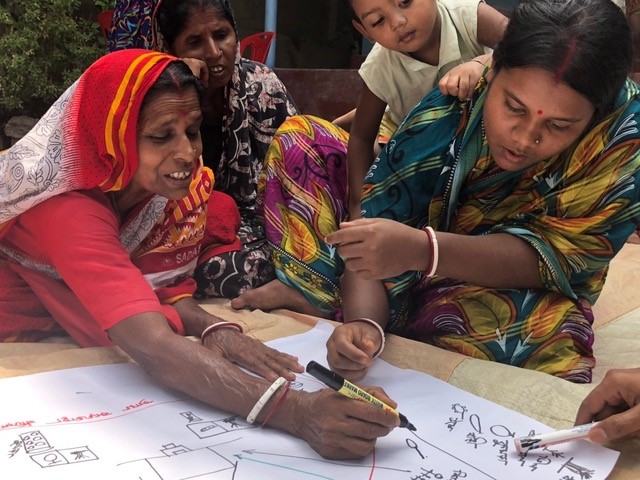An approach developed by a team of researchers at the University of Reading is being used to help farmers in the developing world adapt to and cope with climate change.
With smallholder farmers in developing countries playing an essential role in contributing to food security and reducing poverty, helping them adapt to and cope with increasing climate change and variability is fast becoming a major global challenge.
But smallholder farmers typically have very little access to locally relevant climate and weather information upon which to base their strategies and decisions, while top-down, technology-based climate solutions are of limited use to the small-scale agriculture sector.
An approach developed by Peter Dorward, Graham Clarkson and Roger Stern at the University of Reading is helping smallholder farmers to overcome these challenges, with a view to improving food security, income and resilience. Known as Participatory Integrated Climate Services for Agriculture (PICSA), this approach empowers smallholder farmers to assess weather-related risks and to explore the effects of climate change in their local area, supporting the farmer as the decision-maker while taking into account their aspirations, access to resources and attitude to risk.
The PISCA approach is facilitated through a series of accessible training sessions delivered by agricultural field staff, to help farmers manage their cropping, livestock and non-agricultural activities. Support is offered before, during and after each growing season, so farmers can plan, adapt and reflect on their strategies and decisions.
To date, the PICSA approach has been implemented in 23 countries across four continents – including in all 30 districts of Rwanda and in more than half of all districts in Malawi – by smallholder farmers and the national and international organisations that support them.
Find out more
Participatory Integrated Climate Services for Agriculture (project website)
Putting farmers at the centre of climate information services (project toolkit)
PICSA field manual (English, Bengali, French, Spanish)
View the full impact case study on the REF 2021 website: Participatory Integrated Climate Services for Agriculture–Empowering smallholder farmers to cope with and adapt to challenges associated with climate change and variability

